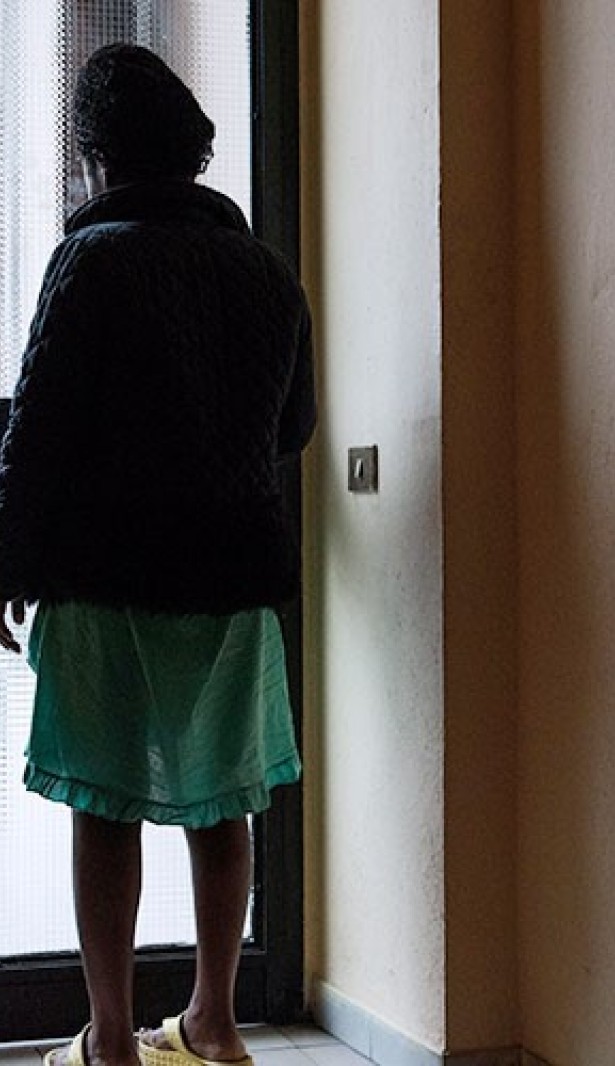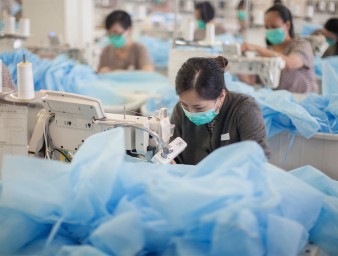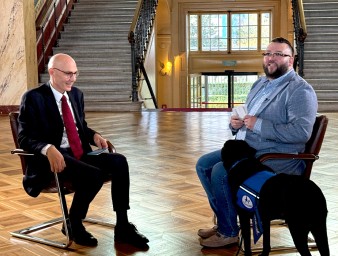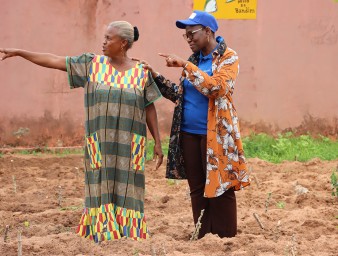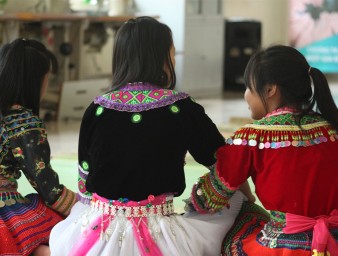Enslavement: a ‘shocking indictment’ on our societies
02 December 2019
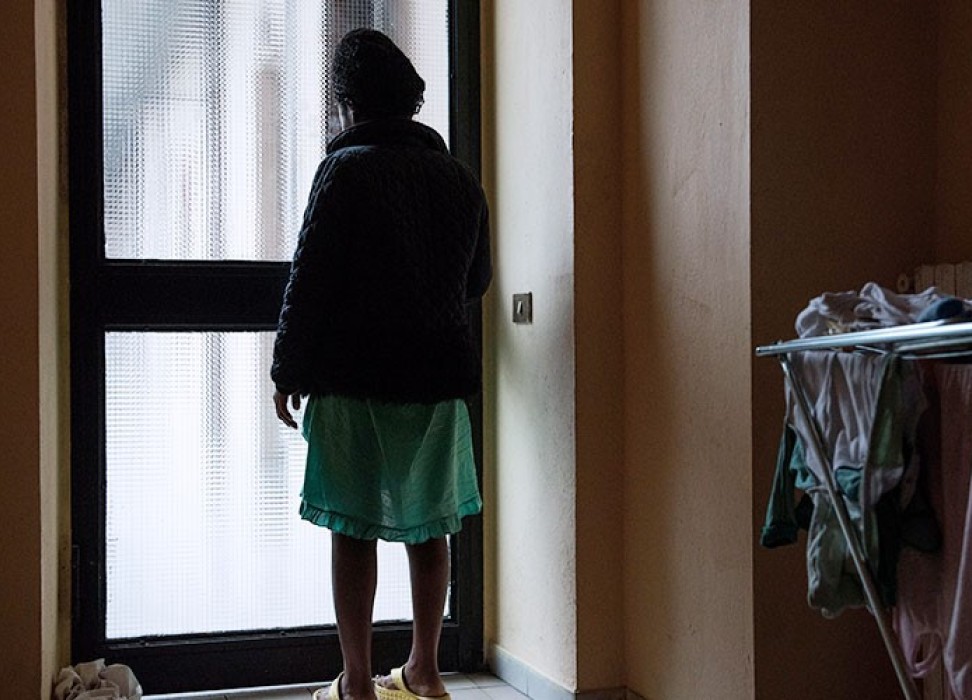
2 December marks the International Day for the Abolition of Slavery. Around the world, more than 40 million men, women and children are enslaved. One of the Sustainable Development Goals aims to eradicate slavery in all its forms by 2030. The UN Slavery Fund has being channelling support to slavery survivors since 1991.
When a 15 year old Vietnamese girl, Sao, was tricked by her friend and sold into China to another family, her life was changed forever. Sao fell pregnant to her new husband, gave birth to a baby girl, and was shortly afterwards sold to work in a winter coat factory.
She eventually found an opportunity to escape back to Vietnam, also managing to rescue a neighbour who was in the same situation. Agonisingly, she was forced to make the heartbreaking decision to leave her little girl behind.
Sao’s story – tragically one of 40 million around the globe – was told by Diep Vuong, the president and co-founder of Pacific Links Foundation. She was speaking at a panel discussion with the UN High Commissioner for Human Rights Michelle Bachelet last week, focusing on eradicating slavery through the participation of survivors and also through the Sustainable Development Goals.
For the last four years, the Pacific Links Foundation has been supported by the UN Voluntary Trust Fund on Contemporary Forms of Slavery.*
Worldwide, it is estimated that more than 40 million men, women, and children are enslaved. This includes 25 million in forced labour, and 15 million in forced marriage. One in four victims are children.
‘Contemporary forms of slavery’ manifest in different ways, including forced labour, forced marriage, other slavery and slavery like practices, and human trafficking. It also covers debt bondage, when a person is tricked into working for little or no pay, with no control over their debt.
Essentially, according to the International Labour Organisation (ILO), it refers to ‘situations of exploitation that a person cannot refuse or leave because of threats, violence, coercion, deception, and/or abuse of power.’
“Enslavement is among the gravest and most comprehensive violations of human dignity,” said Bachelet at the panel discussion. “It has been recognised as a crime against humanity. Freedom from slavery is a human right with no derogation permitted, on any basis. The continued enslavement of millions of people is a shocking indictment of all our societies.”
Vietnam: working with survivors
According to the ILO, the Asia Pacific region accounts for over 40% of the global estimate of child labour.
Diep Vuong’s Pacific Links Foundation works with survivors in Vietnam to assess their needs in order to provide individualised support and guidance on how to achieve their goals.
In Sao’s case, they have helped her realise her dream to study medicine to become a doctor. Earning top marks in science and mathematics at high school, she secured a place in pharmacy school where she is also succeeding. Her next step is medical school.
Vietnam is one of the major ‘source countries’ of human trafficking. Women and girls are trafficked into labour, to become brides, or into sexual slavery. Men are also frequently trafficked for labour.
“People in Vietnam believe that by working very hard, they will have a better life,” says Vuong. “This drive is what causes a lot of people to take risk. A lot of people have access to incorrect information, and so many are tricked and end up taking unnecessary risks.”
The Foundation also works on trafficking prevention, providing scholarships and growth opportunities to at-risk girls in the Mekong Delta. Furthermore, they work with multinationals, providing training to help them comply with international law and reduce the incidence of trafficked workers in industrial areas.
“Trafficking is one of the most critical development issues Vietnam is facing today, and resolving it requires addressing complex root causes,” said Vuong. “It is especially important to give at-risk youth better alternatives for economic opportunities to counter the false promises from traffickers of job opportunities abroad. Considering trafficking as one of the most serious obstacles to development is a critical must-have first step in preventing it.”
Addressing slavery and trafficking through the Sustainable Development Goals
Target 8.7 of the 2030 Agenda for Sustainable Development has committed all States to promise ‘immediate and effective measures to eradicate forced labour, end modern slavery and human trafficking, and secure the prohibition and elimination of the worst forms of child labour.’
Structural discrimination, according to Bachelet, is a major factor in contemporary slavery, as well as the failure of States to adequately protect victims. She urged States to take the actions they have committed to by signing up to Sustainable Development Goal 8.7.
“The 2030 Agenda constitutes an unprecedented road-guide of action and resources to end discrimination, to address the drivers of socio-economic misery, and to stem root causes that increase people’s vulnerability to enslavement,” she said.
*The UN Slavery Fund assists individuals whose human rights have been severely violated as a result of today’s slavery. It provides direct legal, medical, psychological, social and holistic assistance to victims through grants awarded to non-governmental organisations.
Since its establishment by the General Assembly in 1991, the UN Slavery Fund has supported more than 400 organisations in 95 countries, providing rehabilitation and assistance to thousands of victims. In 2019, the Fund is supporting 29 projects in 25 countries with a total budget of USD 595,950.
2 December 2019
UN Voluntary Trust Fund on Contemporary Forms of Slavery
Panel Discussion “Breaking the Chains,” 28 November 2019
Special Rapporteur on contemporary forms of slavery, including its causes and consequences
The 2030 Agenda for Sustainable Development
Human rights and trafficking in persons
Special Rapporteur on trafficking in persons, especially women and children
